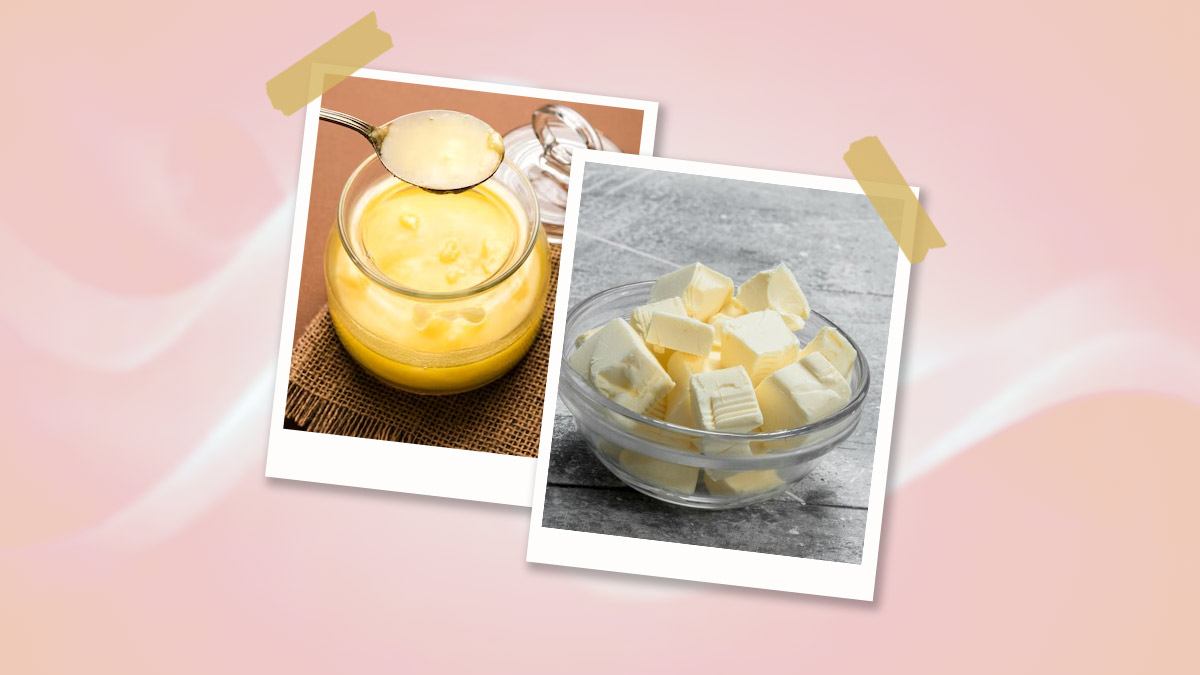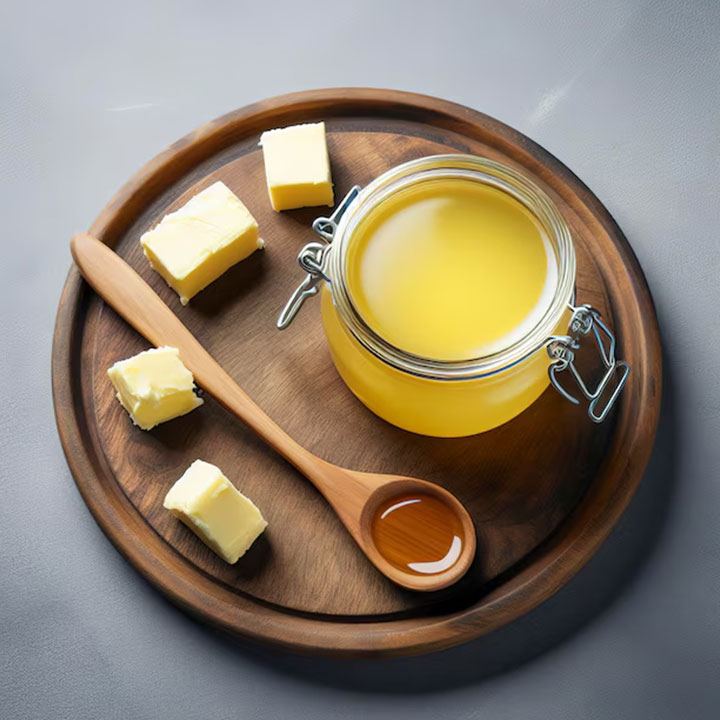
When it comes to cooking ghee, and butter are two popular choices with distinct flavours and culinary uses in India. But when it comes to health, which one is the better option? Let's delve into the nutritional profiles and health benefits of ghee and butter to determine which one might be the healthier choice for you:
Butter: Butter is made by churning cream, resulting in a product that contains both milk solids and water. It is rich in saturated fat, with approximately 80% of its total fat content consisting of saturated fat. As per Healthline, “One tablespoon of butter has about 102 calories.” Butter also contains vitamins A, E, D, and K, as well as small amounts of minerals like calcium.
Ghee: Ghee, also known as clarified butter, is produced by simmering butter to remove the milk solids, resulting in a pure fat product. As per Healthline, “Ghee has a slightly higher concentration of fat than butter and more calories. One tablespoon of ghee has about 120 calories.” Ghee is primarily composed of saturated fat but is free from lactose and casein. Ghee also contains fat-soluble vitamins like A, E, and K, along with butyric acid, a short-chain fatty acid with potential health benefits.

Butter: Butter has a lower smoke point compared to ghee, typically around 350°F (175°C), as per Healthline. This means that butter may burn at higher cooking temperatures, potentially forming harmful compounds and altering its flavour.
Ghee: Ghee has a higher smoke point, usually ranging from 400°F to 485°F (250°C), depending on the quality of the ghee, as per Healthline. Its high smoke point makes ghee a more suitable option for high-heat cooking methods like frying and sauteing.
Butter: Some individuals may experience digestive discomfort or symptoms of lactose intolerance when consuming butter due to its milk solids.
Ghee: Because ghee is free from lactose and casein, it is generally well-tolerated by individuals with lactose intolerance or dairy sensitivities, as per Cleveland Clinic. Ghee's removal of milk solids during the clarification process also contributes to its longer shelf life and stability at room temperature.
Don't miss: French Beans Vs. Fava Beans: Which Is The Healthier Choice? Expert Weighs In

Saturated Fat Content: Both ghee and butter are high in saturated fat, which has been associated with an increased risk of health disease (Heart Diseases In Women: Risk, Symptoms, Management Decoded) when consumed in excess. While both may offer some health benefits when you incorporate them as part of a diet in a limited quantity.
Don't miss: Tofu Vs Paneer – Which One Wins The Battle Of Taste And Nutrition?
The choice between ghee and butter comes down to personal preference, dietary needs, and cooking preferences. If you only consider calories and fat intake, ghee and butter are almost the same. However, ghee offers additional benefits due to the removal of milk solids, such as being lactose-free and having a higher smoke point.
Incorporating both ghee and butter in moderation can add flavour and richness to your meals while providing essential nutrients for overall health and well-being.
Herzindagi.com is Jagran New Media's gender and lifestyle vertical, catering to women of all age groups, helping them remain updated, on-trend and aware. To improve our performance and understand our readers' interests better, we have created this poll. This will take 2 minutes of your time, do help us out with this link.
For more such stories, stay tuned to HerZindagi.
Image credit: Freepik
Also watch this video
Herzindagi video
Our aim is to provide accurate, safe and expert verified information through our articles and social media handles. The remedies, advice and tips mentioned here are for general information only. Please consult your expert before trying any kind of health, beauty, life hacks or astrology related tips. For any feedback or complaint, contact us at [email protected].